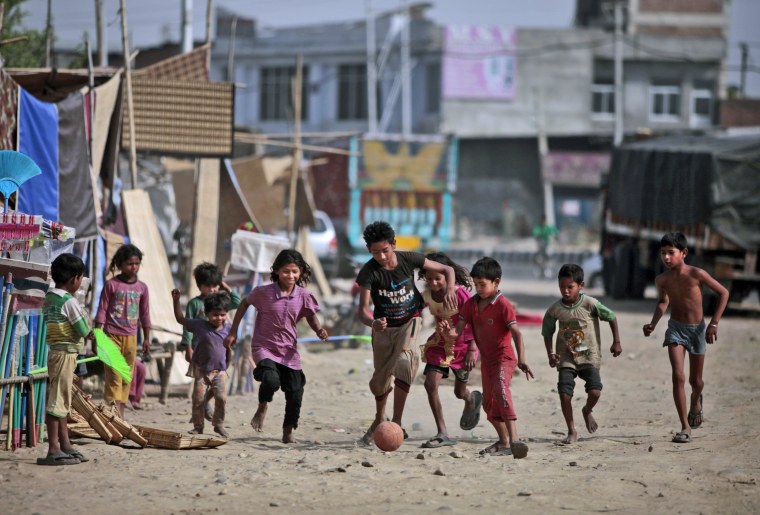NEW DELHI, India — With its national side languishing at 154th place in FIFA’s rankings, India is unlikely to make an appearance at the World Cup finals any time soon.
But there is a team that Indians can rally behind. They’re drawn from even humbler roots than Cristiano Ronaldo, a gardener’s son, or steel worker’s boy Lionel Messi.
They come from India’s teeming, infamous slums.
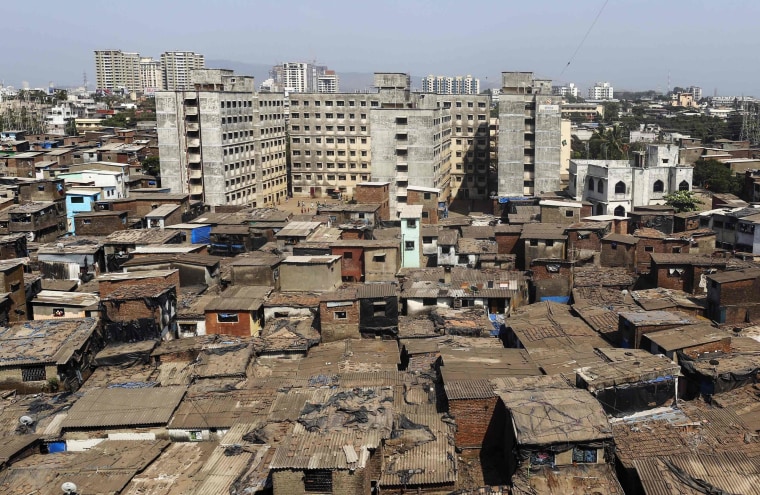
Two teams, male and female, drawn from India’s shanty towns will travel from India to compete at the Homeless World Cup in Santiago, Chile, on Oct. 19.
They will be one of 64 nations competing in an eight-day tournament, in the Chilean capital’s Plaza de Armas.
“...when I play football I’m not concentrating on my worries, what is happening in my home. I can escape that.”
Leading the team will be coach Homkant, a former player who was transformed from a homeless laborer into a goalkeeper representing his country.
Homkant, who goes by only one name, grew up in the village of Ner Parsopant in Maharashtra state, playing street football with his friends.
“We were not using football shoes, just feet,” he said. “The ball was very old, not good quality. We made our own goalposts — two posts with a rope tied to the top.”
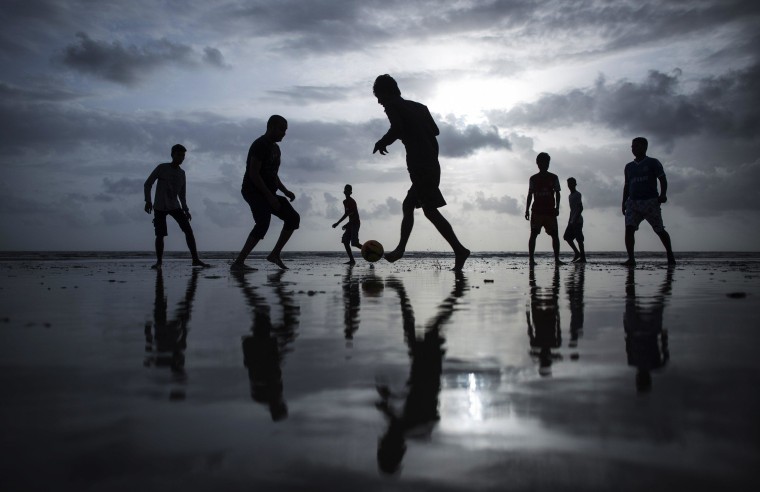
His parents were unimpressed by his hobby, which they felt distracted the boy from finding work. Homkant’s father, a farm laborer, fed his family on a salary of less than a dollar a day.
“My father said he would do suicide if I did not work,” Homkant said. India is blighted by farmer suicides, which researchers say are caused by debt-ridden farmers growing crops that are vulnerable to global price fluctuations. “But when I play football I’m not concentrating on my worries, what is happening in my home. I can escape that.”
Homkant was 14 when a teacher put him forward to play in a tournament in 2003 organized bySlum Soccer, a charity founded in 2001 by Abhijeet Barse, a gym teacher from Nagpur.
Barse was waiting in a shelter during a monsoon downpour when he saw some street children kicking a plastic bucket around. After buying them a football he decided to set up Slum Soccer to give them an escape from slum life.
“We did not know any rules before the Slum Soccer tournament,” Homkant said. “They put us in teams, some with T-shirts, some without, and we played. They encouraged us to play around. Nobody else did that.”
"I didn’t know English well, but we understood that everyone in the world has problems and the important thing is that they deal with them.”
He played in tournaments every year from 2003 until 2007, as a goalkeeper.
“In 2007 we played and my team got to the final. We lost but they asked me to play in the Homeless World Cup.”
Homkant did not tell his parents. He ran away from home and traveled 110 miles to Nagpur where he found a job.
“I worked in a hotel. I asked a woman ‘Auntie will you give me a job.’ I made the tea, but she didn’t have any rooms. It was a small hotel. So I slept in a tree trunk.”
Some students from a nearby college persuaded him to go home to his parents, who were relieved their son was safe. Barse heard about his problems and asked him again to play in the 2008 Homeless World Cup in Melbourne, Australia.
“My parents were very happy when I told them,” he said. “They asked me if I’m telling lies but when they were sure they were very happy.”
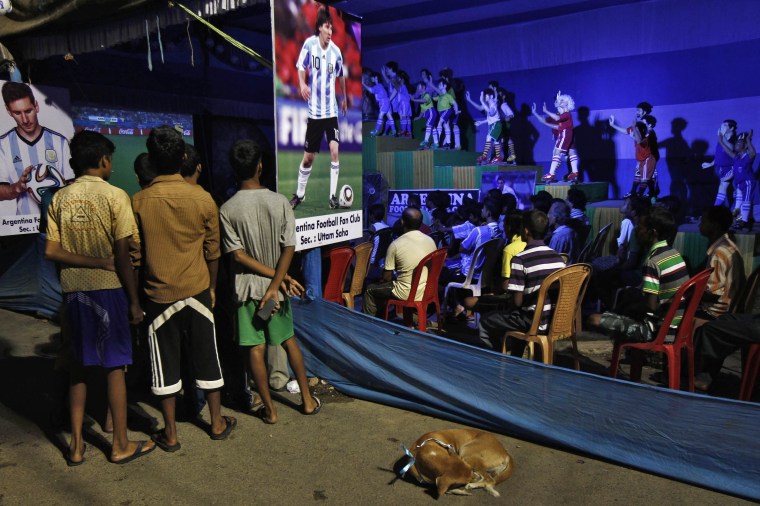
Going to Melbourne changed Homkant’s life. “I saw the international lifestyle. People from 68 countries were there. I didn’t know English well, but we understood that everyone in the world has problems and the important thing is that they deal with them.”
On his return to India, Homkant decided to go to college but had only half of the 4,000 rupee ($60) registration fee. He was offered a job by Barse and began coaching children involved in the Slum Soccer Academy.
In 2011, Homkant coached Indian teams at the 2011 Homeless World Cup in Paris and again in 2013 in Poland. Now he is going to Santiago.
"I tell my players they need to act with fair play and to treat the other player with respect. If they fall over, they should offer their hand. And say sorry.”
They will select 10 players for the male and female teams going to Chile. “But we will only take eight. We select 10 because sometimes the girls and boys have criminal cases against them so it is not possible for them to get passports.”
The players will be selected later this year, but Homkant believes that whoever is selected will need to show they can turn their lives around rather than be capable of beating the best in the world.
“One day we will win the World Cup, don’t worry about that,” he said. “Right now we want to change their lives.”
What of the FIFA World Cup? Homkant is impressed by the Germans but hopes the Netherlands will win. The behavior of players on the field is another matter.
“Some of the time they are not giving the other players respect. Pretending someone has hit you with their head is not good. I tell my players they need to act with fair play and to treat the other player with respect. If they fall over, they should offer their hand. And say sorry.”
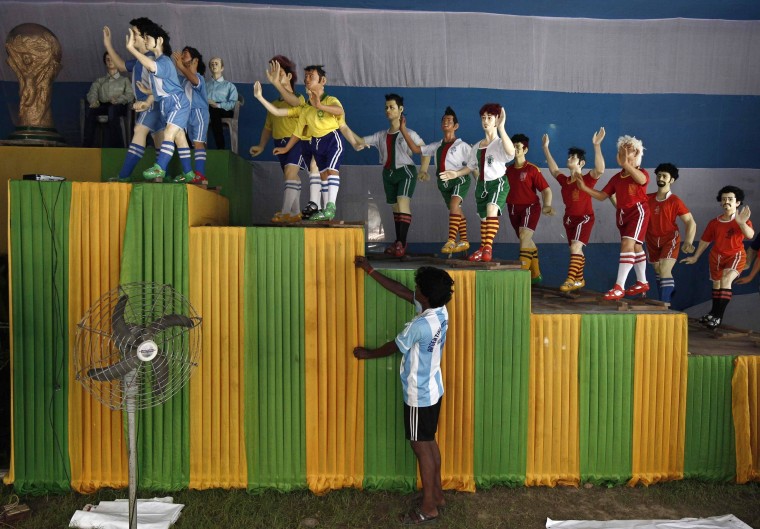
This story first appeared on GlobalPost.
More from GlobalPost:
Here's what else is happening in the Americas besides the World Cup
